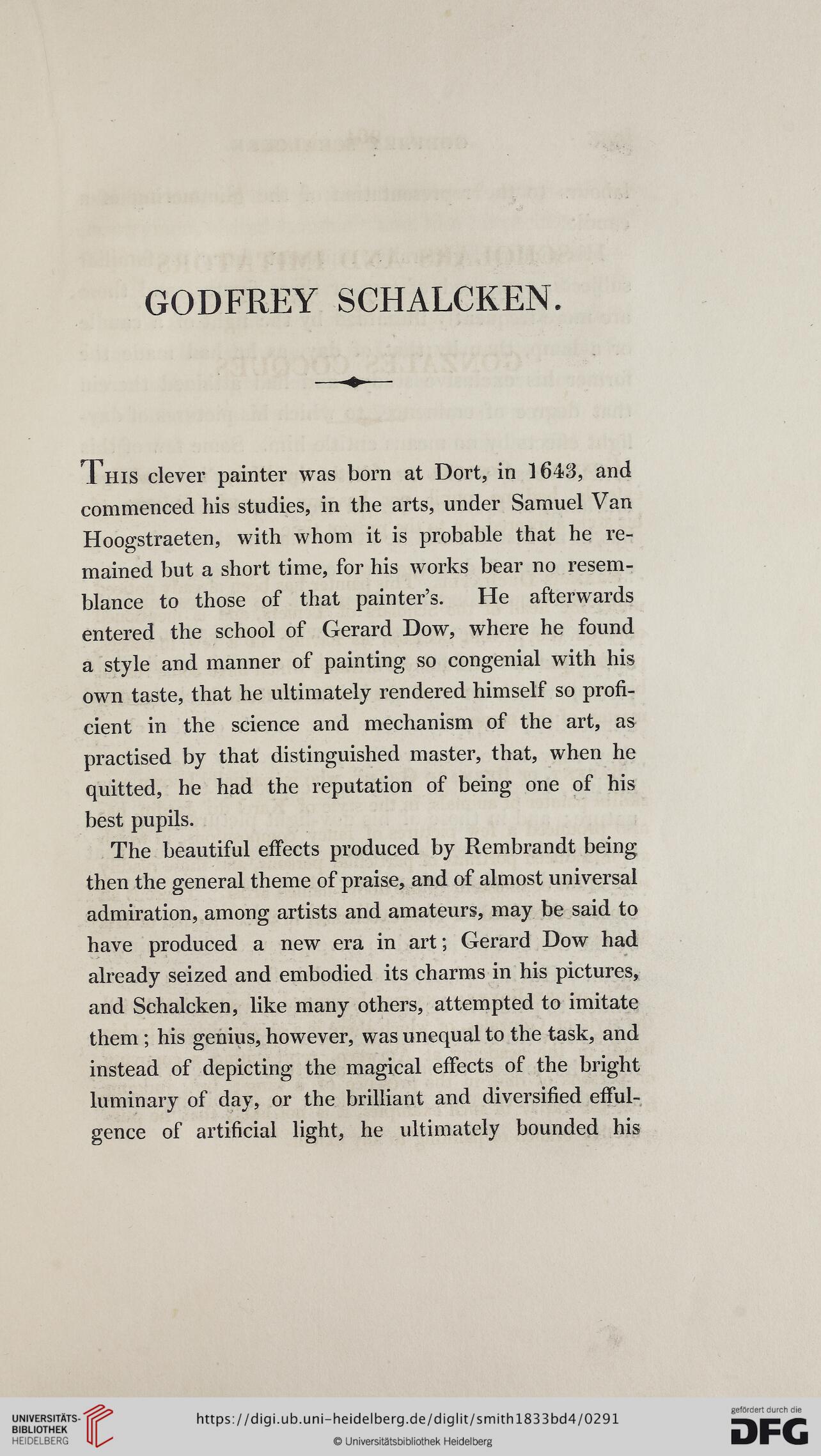GODFREY SCHALCKEN.
This clever painter was born at Dort, in 1643, and
commenced his studies, in the arts, under Samuel Van
Hoogstraeten, with whom it is probable that he re-
mained but a short time, for his works bear no resem-
blance to those of that painter’s. He afterwards
entered the school of Gerard Dow, where he found
a style and manner of painting so congenial with his
own taste, that he ultimately rendered himself so profi-
cient in the science and mechanism of the art, as
practised by that distinguished master, that, when he
quitted, he had the reputation of being one of his
best pupils.
The beautiful effects produced by Rembrandt being
then the general theme of praise, and of almost universal
admiration, among artists and amateurs, may be said to
have produced a new era in art; Gerard Dow had
already seized and embodied its charms in his pictures,
and Schalcken, like many others, attempted to imitate
them ; his genius, however, was unequal to the task, and
instead of depicting the magical effects of the bright
luminary of day, or the brilliant and diversified efful-
gence of artificial light, he ultimately bounded his
This clever painter was born at Dort, in 1643, and
commenced his studies, in the arts, under Samuel Van
Hoogstraeten, with whom it is probable that he re-
mained but a short time, for his works bear no resem-
blance to those of that painter’s. He afterwards
entered the school of Gerard Dow, where he found
a style and manner of painting so congenial with his
own taste, that he ultimately rendered himself so profi-
cient in the science and mechanism of the art, as
practised by that distinguished master, that, when he
quitted, he had the reputation of being one of his
best pupils.
The beautiful effects produced by Rembrandt being
then the general theme of praise, and of almost universal
admiration, among artists and amateurs, may be said to
have produced a new era in art; Gerard Dow had
already seized and embodied its charms in his pictures,
and Schalcken, like many others, attempted to imitate
them ; his genius, however, was unequal to the task, and
instead of depicting the magical effects of the bright
luminary of day, or the brilliant and diversified efful-
gence of artificial light, he ultimately bounded his




